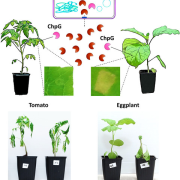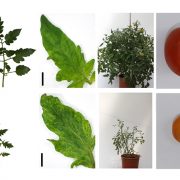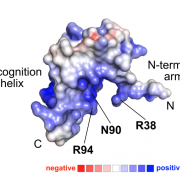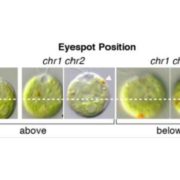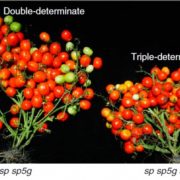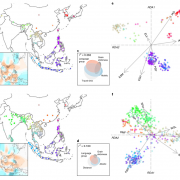Ectopic expression of BOTRYTIS SUSCEPTIBLE1 reveals its function as a positive regulator of wound-induced cell death and plant susceptibility to Botrytis (Plant Cell)
 Programmed cell death (PCD) is a ubiquitous eukaryotic process in which specific cells are eliminated during development or in response to stress. Here, Fuqiang Cui and colleagues confirm for the first time the exact role of the BOS1 gene in the regulation of PCD in Arabidopsis thaliana. Originally identified in screen for susceptibility to the fungus Botrytis cinerea, the bos1 mutant was later shown to exhibit uncontrolled runaway cell death following wounding, suggesting BOS1 is a negative regulator of PCD. As previous bos1 T-DNA lines displayed varying transcript levels, the group first generated their own knock-out lines using CRISPR/Cas9 technology. However, none of these CRISPR/Cas9 mutants displayed the typical bos1 phenotypes in response to wounding or Botrytis infection. By resequencing the bos1 genome and generating further CRISPR/Cas9 mutants lines as well as BOS1 overexpressing plants, the group were able to confirm that bos1 is in fact a gain of function mutant, and not a loss of function mutant as originally described. The authors suggest the increase in BOS1 expression may be driven by the presence of a mannopine synthase promoter near the T-DNA insertion site, and thus urge researchers to be cautious when interpreting phenotypes in SAIL mutant lines in which the promoter is widely present. (Summary by Rory Burke @rorby95) Plant Cell 10.1093/plcell/koac206
Programmed cell death (PCD) is a ubiquitous eukaryotic process in which specific cells are eliminated during development or in response to stress. Here, Fuqiang Cui and colleagues confirm for the first time the exact role of the BOS1 gene in the regulation of PCD in Arabidopsis thaliana. Originally identified in screen for susceptibility to the fungus Botrytis cinerea, the bos1 mutant was later shown to exhibit uncontrolled runaway cell death following wounding, suggesting BOS1 is a negative regulator of PCD. As previous bos1 T-DNA lines displayed varying transcript levels, the group first generated their own knock-out lines using CRISPR/Cas9 technology. However, none of these CRISPR/Cas9 mutants displayed the typical bos1 phenotypes in response to wounding or Botrytis infection. By resequencing the bos1 genome and generating further CRISPR/Cas9 mutants lines as well as BOS1 overexpressing plants, the group were able to confirm that bos1 is in fact a gain of function mutant, and not a loss of function mutant as originally described. The authors suggest the increase in BOS1 expression may be driven by the presence of a mannopine synthase promoter near the T-DNA insertion site, and thus urge researchers to be cautious when interpreting phenotypes in SAIL mutant lines in which the promoter is widely present. (Summary by Rory Burke @rorby95) Plant Cell 10.1093/plcell/koac206


